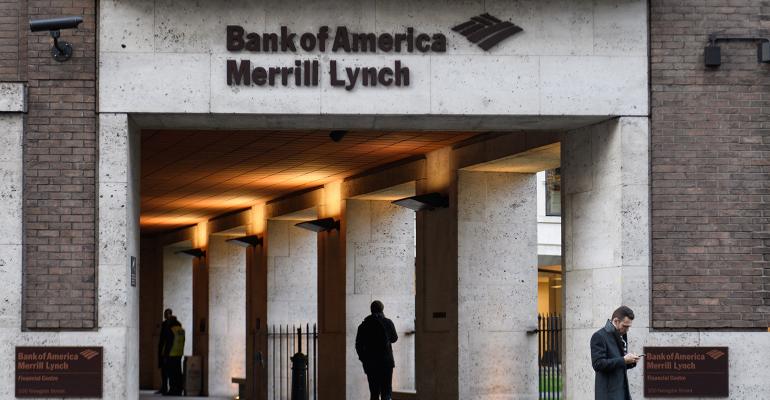NEW YORK, Nov 8 (Reuters) - Bank of America Merrill Lynch said on Wednesday that it will increase the pay of brokers each month who grow their business in 2018 and will cut the monthly pay of those who do not, in a bid to the Wall Street brokerage's own growth.
The new compensation plan, which was sent to Merrill's 15,000 brokers Wednesday afternoon, also eliminates a penalty that sharply cut base pay for advisers whose productivity fell below the lowest tier, a move that will likely keep young, inexperienced advisers who are struggling.
The change comes as top U.S. wealth management firms struggle to maintain growth amid increasing regulatory costs and competition from robo advisers and independent firms.
Merrill and others curbed new adviser recruiting over the last year, which was once a key to growth. With its new pay plan Merrill is attempting to stir greater productivity from its existing advisers while keeping others from leaving.
"All of the (top firms) have been growing very slowly if at all," said Andy Tasnady, head of Tasnady & Associates, which advised Bank of America on the plan. "This is a bold attempt to get people who are growing a little bit or not at all to spend more time on prospecting for new accounts."
Merrill Lynch pays advisers a base amount, which is a percentage of the revenue they earn for the firm, under a payout grid system that is common at securities brokerages.
Next year, advisers can increase their monthly share by 1 percent if they increase the net new assets and liabilities they manage by 5 percent over the prior year.
They can earn an additional 1 percent if they recruit five new clients who have $250,000 in assets or two who have $10 million.
In contrast, advisers who grow their net new assets by less than 2.5 percent will lose 1 percent of their grid pay. Advisers who also fail to bring in three new affluent clients or one new wealthy client will lose an additional 1 percent.
That means that an adviser who generates $1 million in revenue annually and meets both targets could earn $420,000 a year, while an adviser who generates the same revenue but misses both sales targets could earn $380,000.
Brokers also must make two client referrals to other parts of the bank to earn the 2 percent increase.
The bank also eliminated a provision that previously dramatically reduced advisers' payout if they produced less than $350,000 in revenues. Now all advisers who produce less than $350,000 will receive at least 34 percent payout rates. (Reporting by Elizabeth Dilts; Editing by Leslie Adler)






